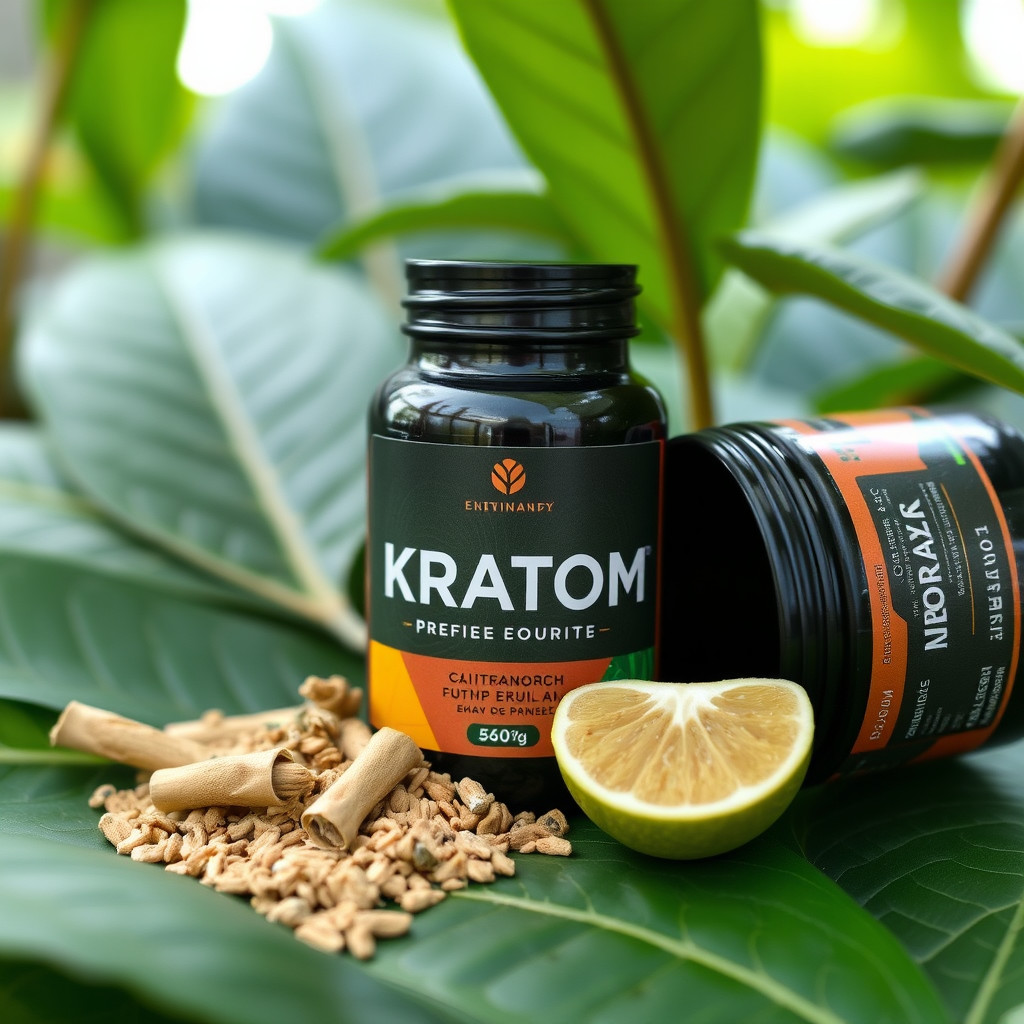Wholesale kratom powder, derived from the Mitragyna speciosa plant, is being recognized for its potential anti-inflammatory properties due to its alkaloids mitraphylline and 7-hydroxymitragynine. These components may modulate inflammation by affecting cytokines and other mediators through various pathways, offering a natural alternative for those with chronic inflammation conditions like arthritis and musculoskeletal pain. It's important to consult healthcare providers before using kratom, considering individual health variability and its legal status. Kratom's potential to modulate immune responses and alleviate inflammatory conditions is under scientific scrutiny, with studies suggesting it can reduce pro-inflammatory cytokines and potentially offer pain relief related to inflammation. However, the use of kratom comes with legal complexities, as its legality varies by jurisdiction, necessitating consumer awareness of local laws. The ethical debate around kratom highlights the need for clinical trial validation to ensure safety and efficacy. Users should prioritize purchasing high-quality, lab-tested wholesale kratom powder from reputable sources to mitigate risks. This summary acknowledges the potential health benefits of kratom alongside the importance of navigating the current legal landscape when considering it for inflammation management.
Kratom, a botanical extract from the Mitragyna speciosa tree, has garnered attention in natural health circles for its potential anti-inflammatory properties. This article explores how wholesale kratom powder may offer relief from inflammation by examining its effects on immune responses and inflammatory markers. We will delve into the scientific underpinnings of kratom’s influence on the body, while also considering the ethical and legal landscape surrounding its use. Understanding the nuances of kratom’s role in inflammation reduction is key to assessing its place in holistic health strategies.
- Unveiling the Potential of Wholesale Kratom Powder in Mitigating Inflammation
- Understanding Kratom's Role in Modulating Immune Responses and Reducing Inflammatory Markers
- Navigating the Ethical and Legal Considerations When Utilizing Kratom for Inflammation Relief
Unveiling the Potential of Wholesale Kratom Powder in Mitigating Inflammation

Wholesale kratom powder, derived from the leaves of Mitragyna speciosa, has garnered attention for its potential anti-inflammatory properties. Numerous anecdotal and emerging scientific studies suggest that certain alkaloids present in kratom, such as mitraphylline and 7-hydroxymitragynine, may play a role in modulating the body’s inflammatory response. The anti-inflammatory effects are believed to be mediated through various pathways that influence the activity of cytokines and other inflammatory mediators. This could potentially offer relief for individuals suffering from chronic inflammation-related conditions without the side effects associated with traditional pharmaceuticals.
Inflammation is a natural immune response, but when it becomes persistent or uncontrolled, it can lead to various health issues. Wholesale kratom powder offers a unique opportunity in the realm of natural supplements due to its alkaloid composition. Users reportedly utilize kratom for its anti-inflammatory benefits, with some finding relief from conditions like arthritis and musculoskeletal pain. While research is ongoing, the availability of wholesale kratom powder provides a cost-effective option for both retailers and consumers to explore as a natural approach to inflammation reduction. It’s crucial for those considering kratom as an anti-inflammatory agent to consult with healthcare professionals to ensure safe use, especially given individual differences in response and the regulatory status of kratom in their jurisdiction.
Understanding Kratom's Role in Modulating Immune Responses and Reducing Inflammatory Markers

Kratom, a tropical tree native to Southeast Asia, has garnered attention in both traditional and modern medicine due to its potential modulating effects on immune responses and its ability to reduce inflammatory markers. The active compounds found in kratom leaves, principally mitragynine and 7-hydroxymitragynine, are believed to interact with the body’s immune system by influencing various pathways and receptors involved in immune function. This dual-action mechanism may help in dampening excessive inflammatory responses, a hallmark of many diseases, while also enhancing the body’s natural defense mechanisms against pathogens.
Research indicates that kratom may play a role in reducing the levels of certain inflammatory cytokines, which are key players in the body’s immune response. By addressing these cytokines, kratom could potentially provide relief for conditions characterized by chronic inflammation. Additionally, the anti-inflammatory properties of kratom are thought to be beneficial in managing pain associated with inflammation. For those interested in exploring the benefits of kratom, wholesale kratom powder offers an economical and accessible entry point to experiment with this natural compound within a controlled environment, always under the guidance of a healthcare provider. It is important to approach any supplementation with a comprehensive understanding of dosage, potential interactions, and individual health considerations.
Navigating the Ethical and Legal Considerations When Utilizing Kratom for Inflammation Relief

When considering the use of kratom for inflammation relief, it is imperative to navigate the complex ethical and legal landscape surrounding this botanical substance. Kratom, derived from the leaves of Mitragyna speciosa, has been traditionally used in certain cultures for its potential pain-relieving and anti-inflammatory properties. However, its status is subject to varying regulations across different jurisdictions. Wholesale kratom powder, a popular form of kratom consumption, is available in many markets but is subject to strict legal controls in others. It is crucial for consumers to be aware of their local laws before purchasing and using kratom products, as its legality can fluctuate based on changing policies and regional interpretations of its controlled substance status. Ethically, the use of kratom raises considerations regarding public health, with advocates highlighting its potential benefits and critics pointing out the need for rigorous clinical trials to establish its safety and efficacy. Users seeking inflammation relief through wholesale kratom powder should approach this remedy responsibly, considering both the therapeutic possibilities and the legal constraints governing its use. Engaging with reputable vendors who provide high-quality, lab-tested kratom products can help mitigate some of the risks associated with its consumption. As such, individuals interested in exploring kratom for inflammation should do so with a well-informed understanding of both the potential health benefits and the current legal framework within which it operates.
In conclusion, the exploration into the potential of wholesale kratom powder as a natural approach to inflammation reduction has yielded promising insights. The compounds found within kratom have been shown to play a significant role in modulating immune responses and lowering inflammatory markers, offering a potential alternative for those seeking relief. However, it is imperative to navigate the ethical and legal frameworks governing its use, as kratom’s status varies across regions. Prospective users should exercise caution and consult healthcare professionals before integrating kratom into their wellness regimen. The balance between its beneficial properties and regulatory compliance must be carefully considered for safe and effective use in addressing inflammation.






